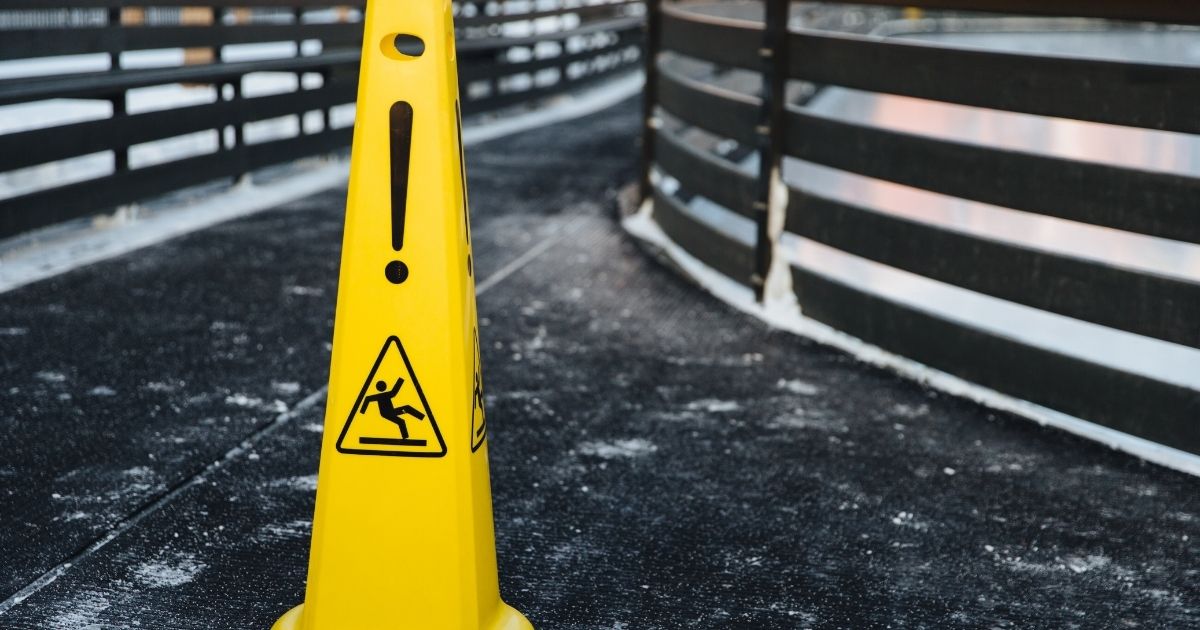Landlords have a legal responsibility to provide a safe environment for their renters, just as homeowners have a responsibility to maintain their home. This responsibility, referred to as duty of care in law, means that landlords, like homeowners, can be held liable for tenant injuries under some circumstances.
Duty of care means a landlord has to maintain the condition of the property that they are renting to a tenant. That means they have a duty to make repairs when they receive a reasonable request from a renter. If there is a hazard of some kind that cannot be immediately eradicated, the landlord must acknowledge the problem, and the tenant should be informed about the potential danger in writing. If the landlord failed to correct the hazard on the property and the tenant is injured in a slip and fall accident, they might be liable.
The landlord’s responsibility extends beyond the condition of the property itself. If a tenant is the victim of a crime that could have been prevented if the appropriate protective measures had been implemented, the landlord could potentially be held liable for that as well. There is another dimension that applies to criminal activity. If someone is injured as a result of activity that is taking place in a rental property, such as drug dealing, the owner of the property could be sued for maintaining a public nuisance.
Examples of Landlord Negligence
A landlord is not automatically going to be responsible any time a tenant is injured on a rental property. Negligence must be proven, and several factors are taken into consideration by the court when a landlord negligence case is being heard.
Some of the scenarios are rather simple and straightforward. If there is a back patio that is raised 20 feet off the ground and the landlord knows that the railing is falling apart, they are probably liable if a tenant is injured in a slip and fall accident. In a case like this, the landlord was aware of the dangerous condition of the railing, and they could have taken control of the situation to prevent an accident.
In some instances, it can be difficult to prove that the landlord was aware of the hazard. Negligence can be passive in a broad sense. If general disrepair and a lack of proper maintenance created a situation that led to an injury, the injured party may have a case.
Contextual Factors
The court will take the cost factor versus the degree of risk into consideration if a plaintiff contends that a landlord should have made a particular repair. If the repair would have been relatively simple and inexpensive, a contention of negligence may have merit.
On the other hand, if the failure to provide a very expensive repair or improvement is at the root of the matter, the court may see it in a different light. It would depend on the extent of the risk that was present compared to the cost of the response.
Minor Children
Generally speaking, a landlord must demonstrate reasonable care with regard to the condition of the property they are renting. However, reasonable care, as it applies to an adult tenant is one thing, but the standards are different when a minor child is living in a rental property. A staircase that is safe for an adult to use, for example, could be dangerous for a small child.
However, there are a host of dangers surrounding a feature that is very often used to market homes to renters: pools. Children are often drawn to pools, and a child could easily slip and fall into one if it is not properly secured.
Since there are inherent dangers that come along with pools, landlords must take the appropriate steps to provide safe environments for minor children, including those who do not live in rental properties. There are the built-in costs of maintaining the pool, but security around the pool is also important. Slip and fall accidents often happen around pools as well. Pool decking must be maintained to reduce the risk of this happening.
What Damages are Possible for Tenants?
The compensatory damages that a tenant can receive will depend on the circumstances. They can potentially receive compensation for medical expenses, lost wages, damaged property, ongoing disability, emotional stress, and pain and suffering.
A lawyer can help a tenant prove that the negligence of the landlord caused the slip and fall accident. It is important to note that each party will be assigned a percentage of fault in a slip and fall accident case. The percentage of fault will be deducted from the overall damage award. If the plaintiff is more than 50 percent responsible for the accident, they are barred from collecting damages. For this reason, it is critical to speak to a lawyer after a slip and fall accident.
Mount Laurel Slip and Fall Lawyers at the Law Office of David S. Rochman Help Tenants Injured in Slip and Fall Accidents
You can rely on our Mount Laurel slip and fall attorneys at the Law Office of David S. Rochman if you are embroiled in a landlord liability dispute due to a slip and fall accident. Call us at 856-751-2345 or contact us online to schedule a free consultation. Located in Mount Laurel, New Jersey, we serve clients throughout the surrounding areas.


